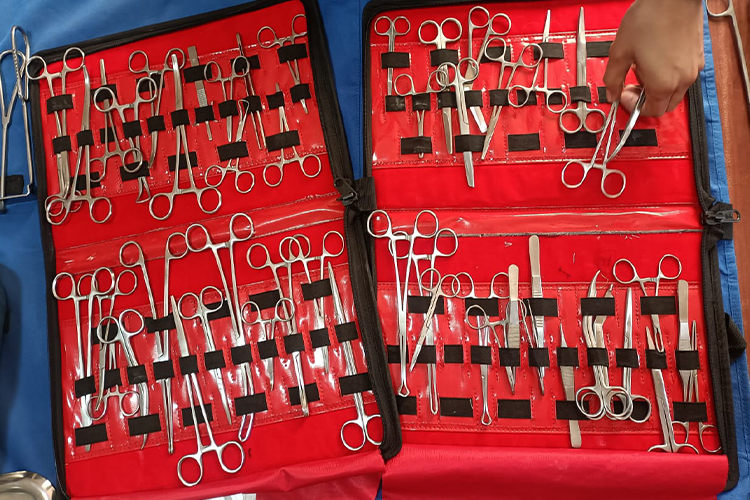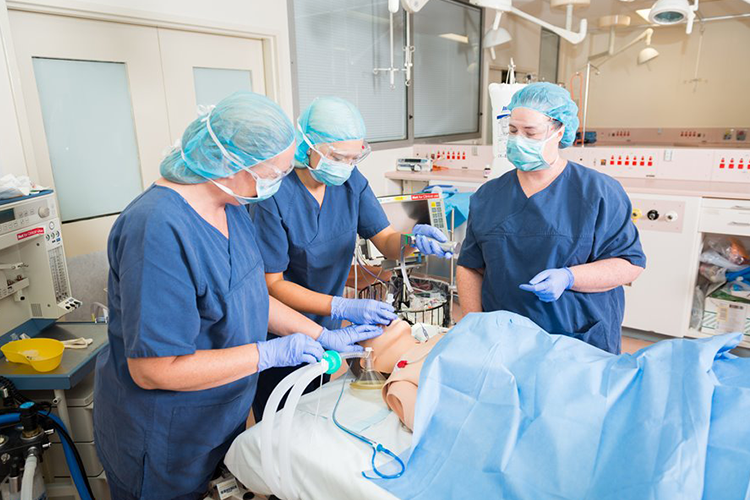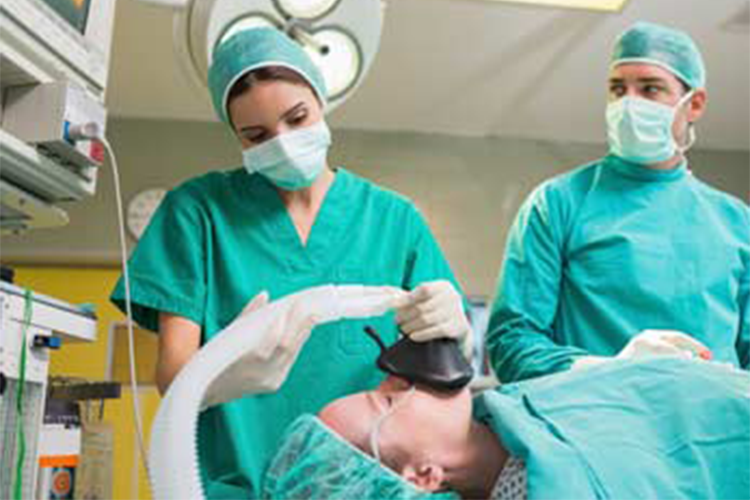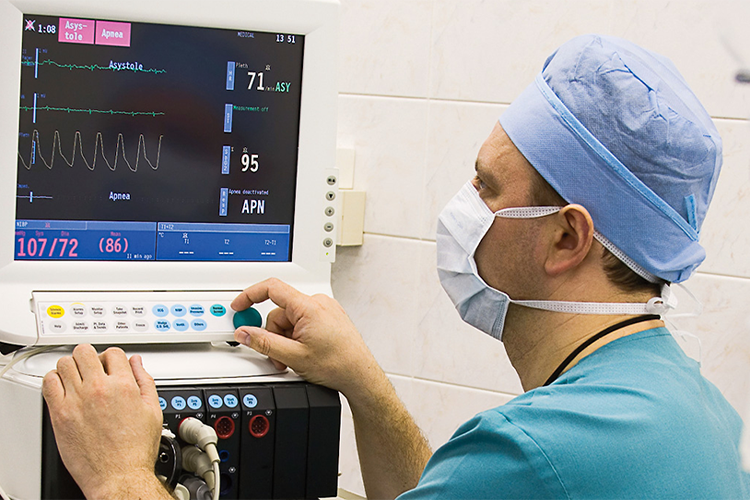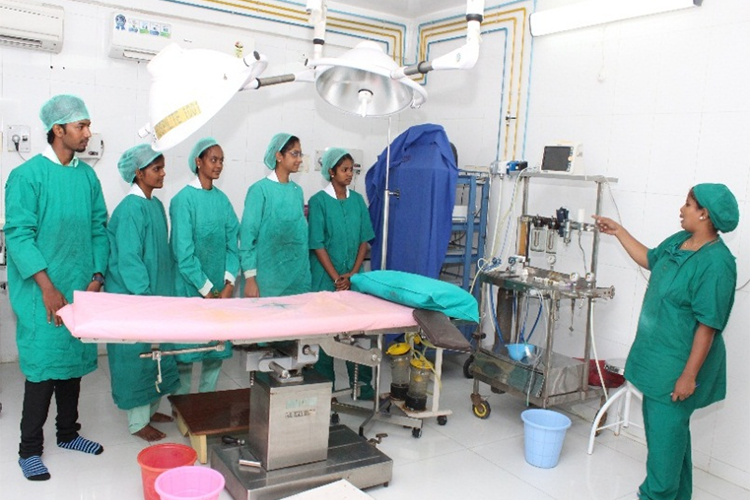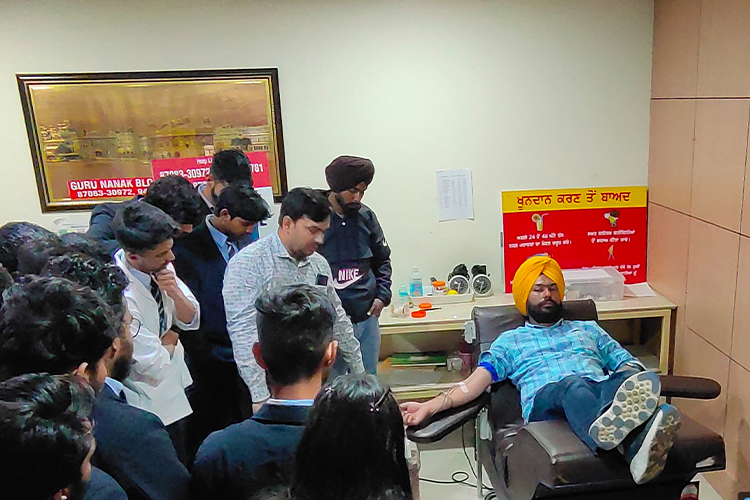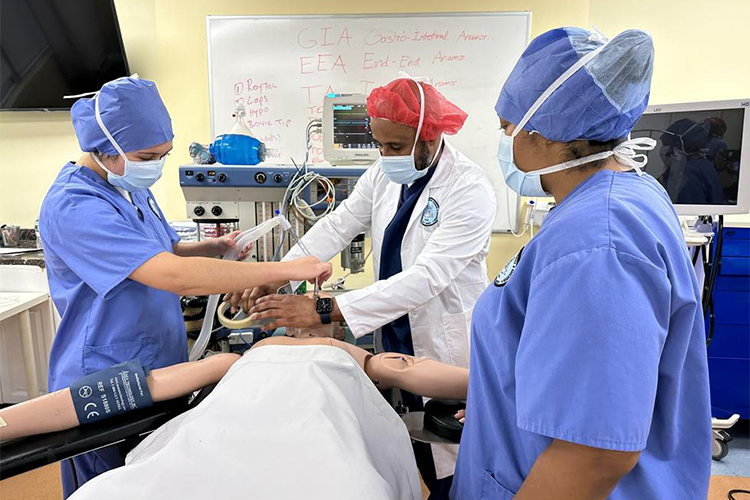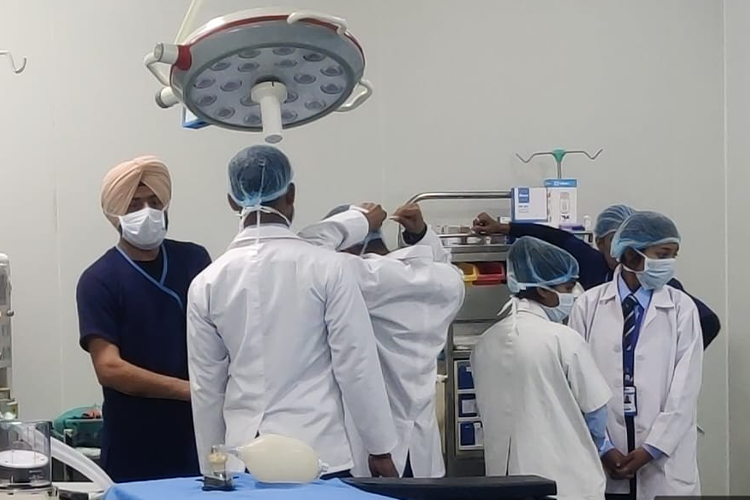Course Structure
Introduces fundamental concepts of human anatomy and physiological processes, focusing on the body’s structure and function, vital for understanding medical practices in anesthesia and surgical settings.
Covers essential techniques and procedures involved in anesthesia administration, including equipment usage, patient preparation, and understanding of different anesthesia types crucial for surgical operations.
Explores microorganisms and their role in infections, disinfection, and sterilisation, particularly within the operating room, ensuring patient safety and sterile conditions during surgery.
Instills ethical values, awareness of addiction issues, and traffic rules, providing students with holistic knowledge on personal development, social responsibility, and compliance with road safety standards.
Focuses on enhancing communication skills, both written and verbal, ensuring that students are proficient in medical terminology and professional interactions within healthcare environments.
A more advanced look at the human body systems, providing a deeper understanding of how anatomical structures support physiological processes, critical for anesthetic and surgical procedures.
Introduces various surgical tools and modern technologies used in the operation theatre, emphasising the handling, sterilisation, and maintenance of equipment for successful surgical interventions.
Focuses on the chemical processes in the body and pathological conditions, providing insight into how diseases affect the body and the biochemical basis for anesthetic responses.
Covers the impact of healthcare activities on the environment, with an emphasis on sustainable practices, waste management, and environmental protection in medical settings.
Guides students in personal and professional growth, fostering critical thinking, leadership skills, and ethical decision-making in the medical profession.
Introduces the principles, administration, and monitoring of general anesthesia, focusing on patient safety and effective anesthesia techniques for a wide range of surgeries.
Covers the study of drugs, their mechanisms, effects, and safe usage in anesthesia, emphasising medications commonly used during surgeries and their impact on patient care.
Teaches the identification, use, and care of surgical instruments, with an emphasis on their role in successful surgical procedures and patient safety.
Focuses on the standards and practices necessary to maintain high-quality care and ensure patient safety in anesthesia and surgical environments.
Covers anesthesia techniques and considerations specific to obstetric and gynaecological surgeries, with a focus on patient care during childbirth and related procedures.
Explores various types of surgical interventions, including pre-operative and post-operative care, helping students understand their role in supporting surgical teams and patient outcomes.
Provides knowledge of local and regional anesthesia methods, including spinal, epidural, and nerve block techniques, with a focus on minimising patient discomfort during surgeries.
Covers the principles of managing critically ill patients, with a focus on monitoring, equipment, and procedures required in intensive care units, especially following surgery.
Focuses on the techniques and considerations for administering anesthesia in specialised surgeries such as cardiac, neurosurgery, and paediatric cases, requiring precision and expertise.
Teaches the management of anesthesia for patients with existing medical conditions, such as diabetes or hypertension, ensuring safe and effective surgical outcomes.
Explores the sterilisation processes within the Central Sterile Supply Department, emphasising infection control, equipment sterilisation, and safety in the operating room.
Introduces statistical methods used in healthcare research, focusing on the interpretation and application of statistical data for patient care, surgical outcomes, and healthcare management.
Provides knowledge on managing patients in the ICU post-surgery, with a focus on ventilator support, monitoring systems, and patient safety during critical recovery periods.
Focuses on complex surgical cases requiring advanced anesthesia techniques, with detailed attention to patient monitoring, anesthesia depth, and surgical complications.
Covers the identification and management of anaphylactic reactions during surgery, as well as understanding autoimmune conditions that can affect anesthesia and patient care.






















